
How has spraying insecticides altered the genes of mosquitoes in Côte d’Ivoire? Has genomic data uncovered a distinct population of Anopheles hidden on the coast of East Africa? How can I code my data plots for the most user-friendly colour palette possible?
These were just some of the questions discussed at a vector genomics data analysis ‘hackathon’ jointly held by MalariaGEN and the Pan-African Mosquito Control Association (PAMCA) ahead of the latter’s annual conference in Addis Ababa, Ethiopia.
Most importantly, these discussions are happening face to face. A community is growing across countries and continents, dedicated to the data analysis skills needed to control the Anopheles mosquitoes spreading malaria across Africa.
 A second chance
A second chance
This is the second MalariaGEN-PAMCA hackathon event, the first was held a year ago in Rwanda. Having another opportunity to meet colleagues is particularly poignant for Albert Gangbadja, a researcher from Benin starting out in his career.
“To attend this hackathon is a blessing. I was eager to attend the first one that was organised in Kigali. Then my flight was delayed because of a strike, so I missed it. I’m quite excited to be here!”
“My goal is to be a bioinformatician,” explains Albert. “This meeting will help me sharpen my skills. Everything I’m learning here is a good start, a stepping stone to go further.”
Having already completed a masters degree in biochemistry and molecular biology, focusing on the mosquito microbiome, Albert is looking into further studies. “We do not have this kind of [bioinformatics] curriculum in my country, so I’m looking abroad for my PhD. The problem is when you don’t have a strong background of research experience it’s difficult to get those kinds of opportunities. That’s why I wanted to attend this event to build skills and a network.”
‘A real-life connection’
Many attendees’ data analysis skills were developed over a series of regular online workshops which took place last year, culminating in the first hackathon event. That initial cohort of learners has since been applying their new knowledge to problems of malaria vector control in their own countries, and were keen to exchange their experiences in person.
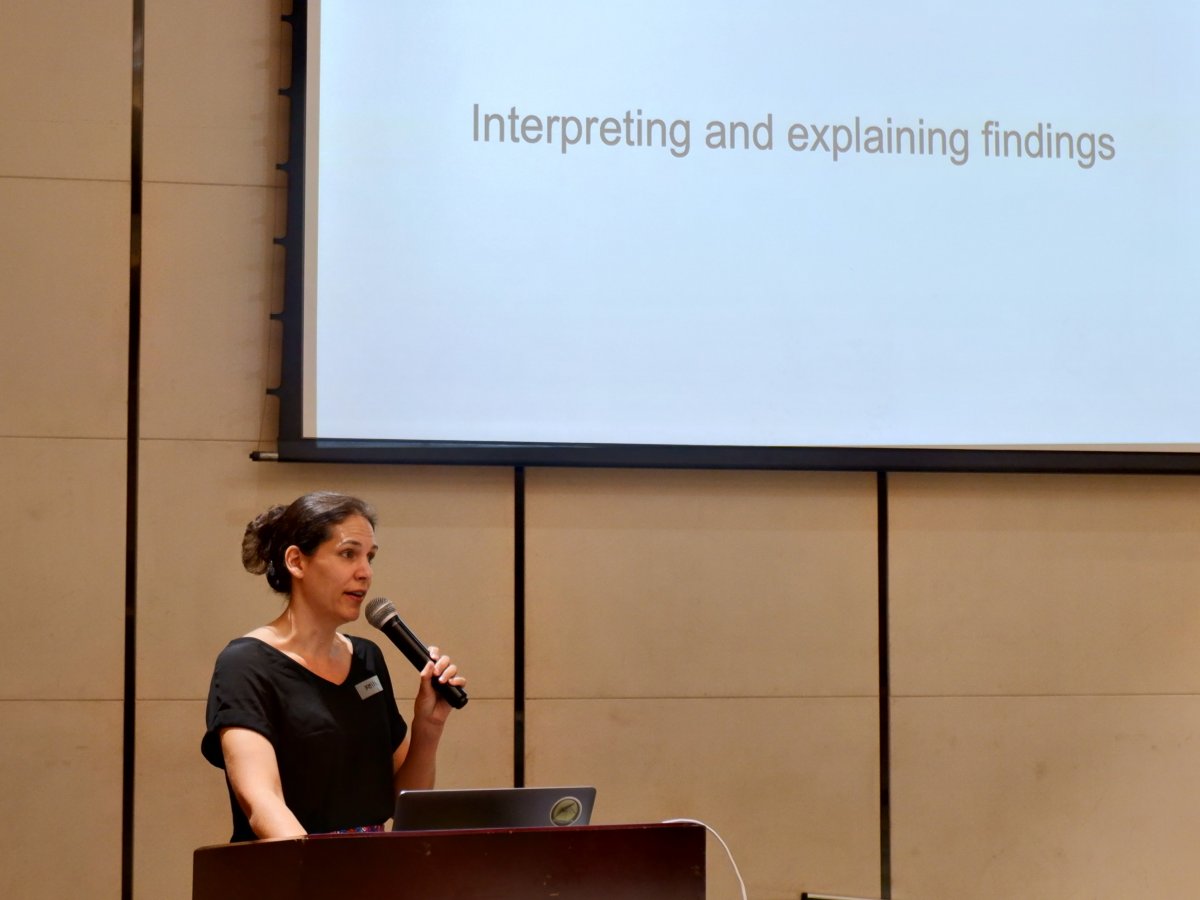
Typical of the hackathon format, there was plenty of free-form time for the group to seek advice and collaborate on aspects of their ongoing data projects. There was also an update from the Vector Surveillance team at the Genomic Surveillance Unit (Wellcome Sanger Institute), detailing the latest MalariaGEN data openly available for analysis – some 15,000 genome sequences for Anopheles gambiae mosquitoes with more coming soon, plus a new dataset of 2,700 Anopheles funestus sequences.
Another session gave hands-on guidance for interpreting and presenting findings from genomic surveillance data and transforming that into a scientific report. This under-appreciated craft is essential considering how even great research sometimes never gets published simply because of the way it is written up.
Dr Kelly Bennett, who led the report writing session, was particularly excited to meet Sophie Mwinyi, a student from the Ifakara Health Institute in Tanzania. Since 2021, Kelly has been collaborating with Sophie on a project using genomic data to explore the population structures of An. gambiae and An. arabiensis across her country. Now they could work on the finishing touches for Sophie’s first manuscript face to face, rather than at a distance of more than 7,000 kilometres.
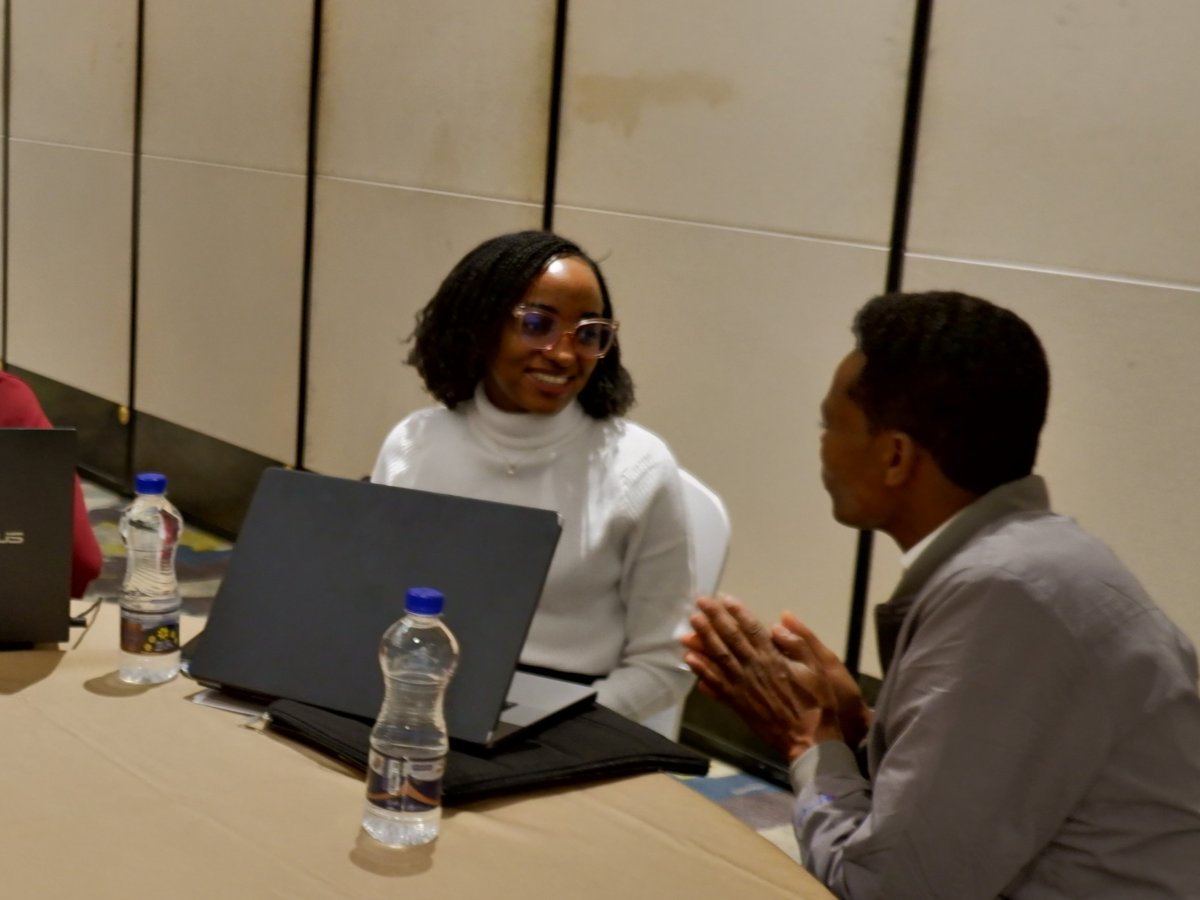
“We’ve spoken many times virtually but never in person. It’s nice to finally make a real-life connection,” says Kelly. “The hackathon is very sociable, which I think is important because it makes everyone much more approachable. And that makes people comfortable asking questions and seeking any help that they need – either now or in the future.”
Sophie describes coming together as a group as “a wholesome experience”. Ultimately, she hopes to train more people in genomics in Tanzania. “I would love to. There’s so much data currently, so much to do, so many projects, so many scientific questions to answer. Genomics is a good tool that is able to answer scientific questions that many people have and provide sustainable solutions to eventually eradicate malaria.”
Vector genomics for everyone
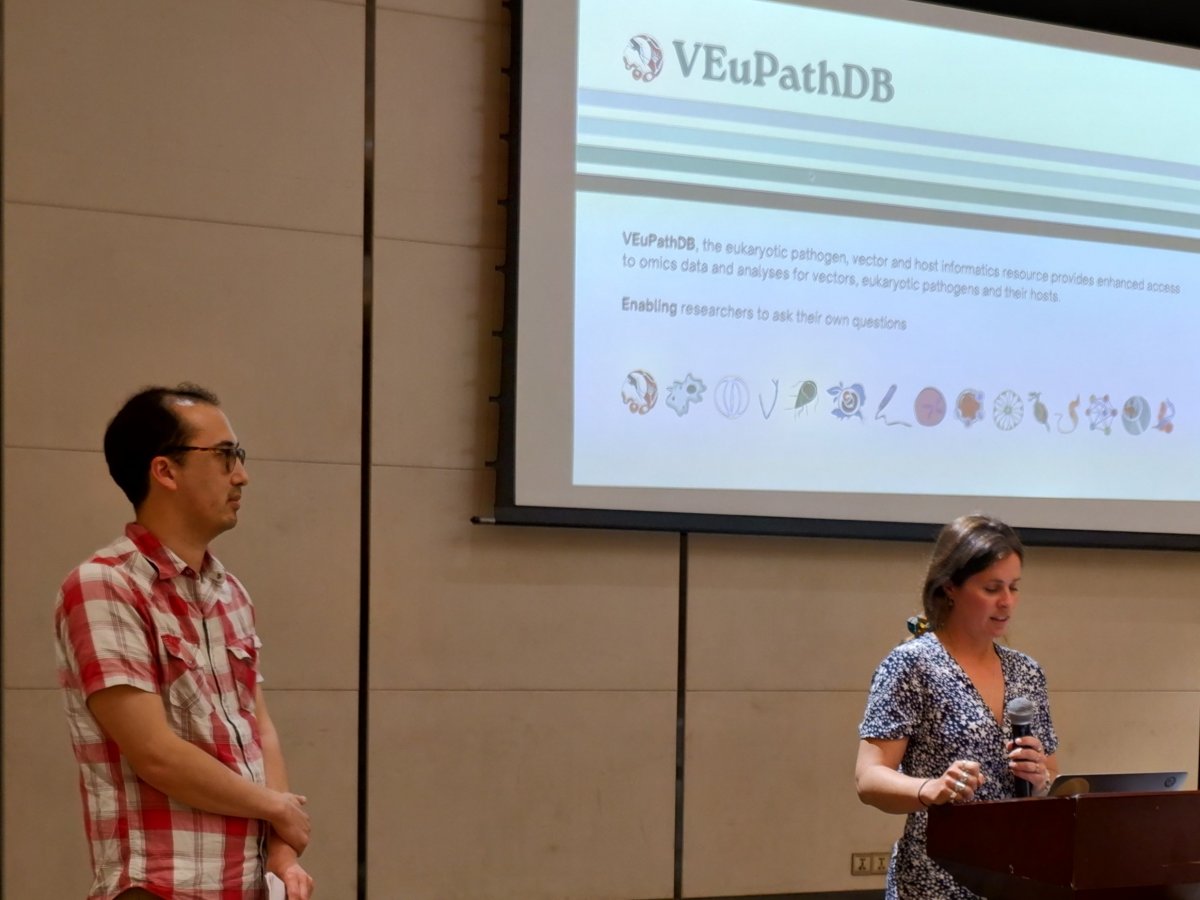
Also at the hackathon were the team responsible for VectorBase, part of a family of open-access, online data-mining resources provided by the Eukaryotic Pathogen, Vector & Host Informatics Resources Center (VEuPathDB). These help scientists with minimal bioinformatics background look for meaningful biological relationships within large-scale genomic and epidemiological data sets. VectorBase specifically focuses on the animals which help transmit infectious diseases: not just the malaria-transmitting Anopheles, but other disease-spreading mosquitoes, many insects, and even a group of snails.
“With MalariaGEN, it’s really cool to see VectorBase being used in the wild and how that works. We can hear the kinds of questions people are asking and maybe go back and find ways we can support them,” says Dr Sam Rund. “Sometimes it’s the smallest little things that one partner can do to make everyone’s jobs much easier.”
Thanks to the hackathon organisers, who also arranged travel funds for many of the attendees, data-driven scientists from 14 nations were able to spend two days together, all in one room in the Ethiopian capital. The community now includes researchers across Africa, from those starting their careers to senior academics at the forefront of their field, as well as the people responsible for developing the tools that make malaria vector genomics possible.
Having finally made the flight from Benin this year, Albert puts the motivations of everyone in the room plainly. “We are trying to do our best to contribute to vector control in our countries. Because malaria is a threat to our public health.”
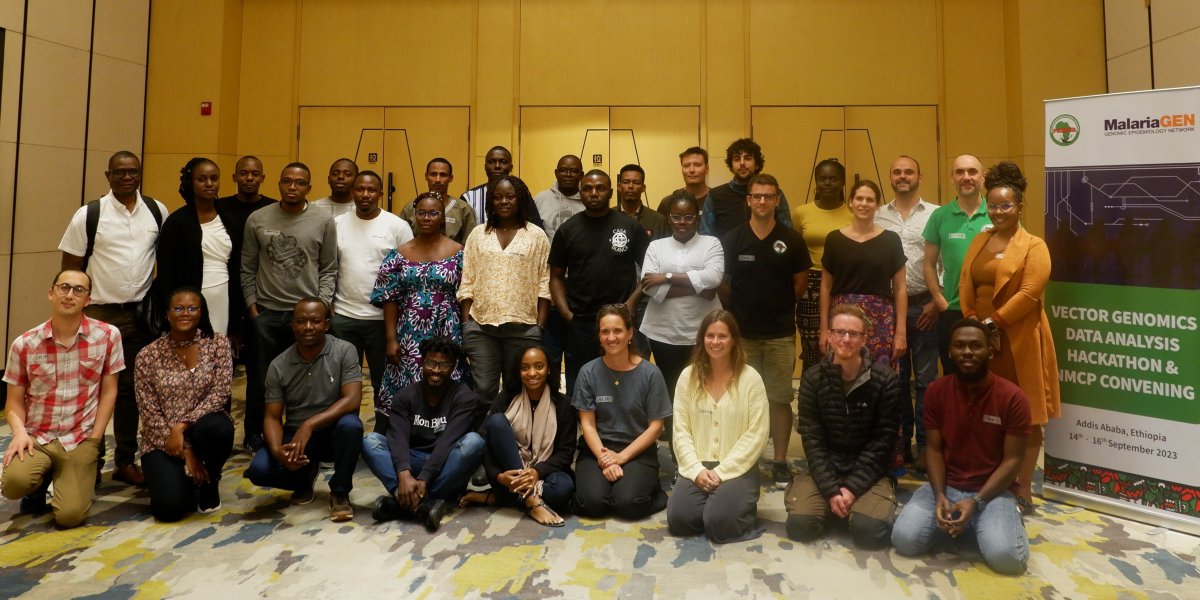

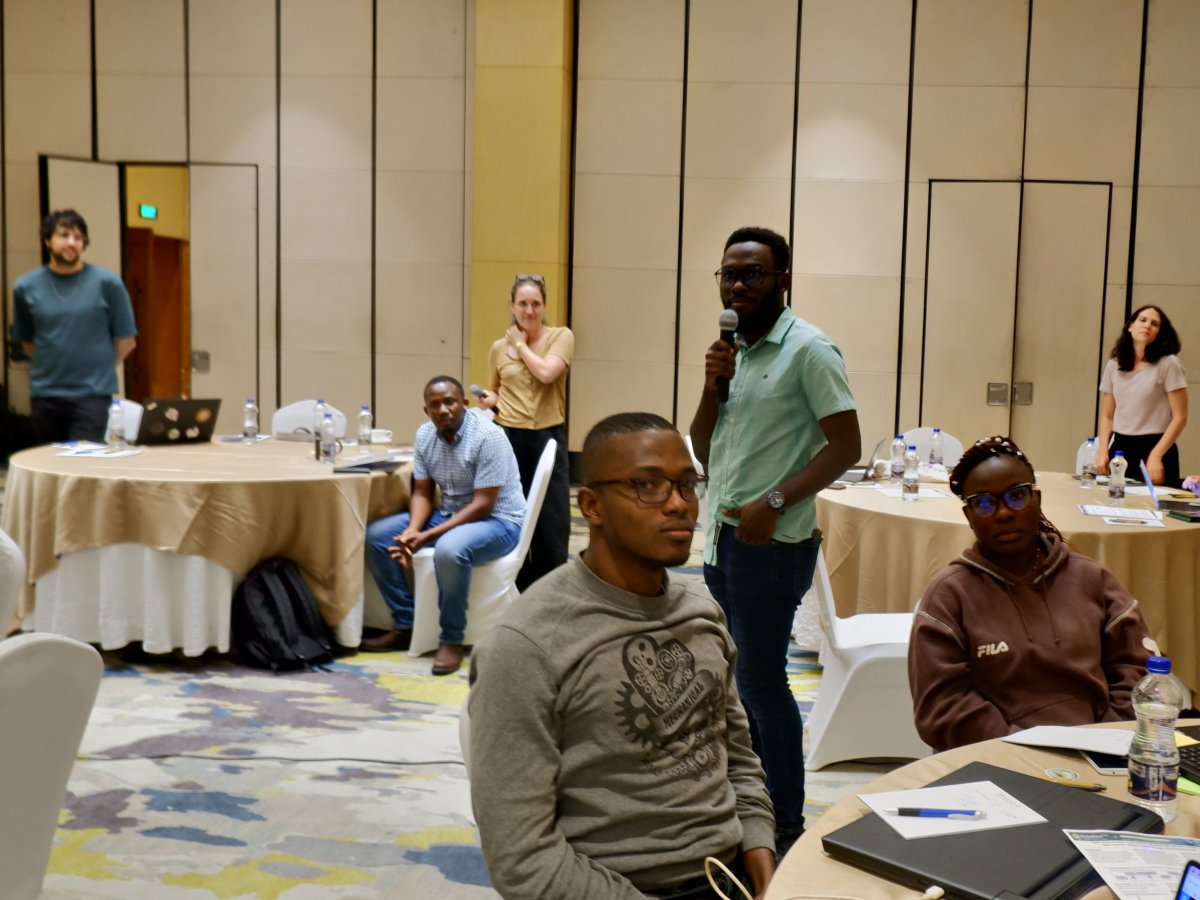 A second chance
A second chance